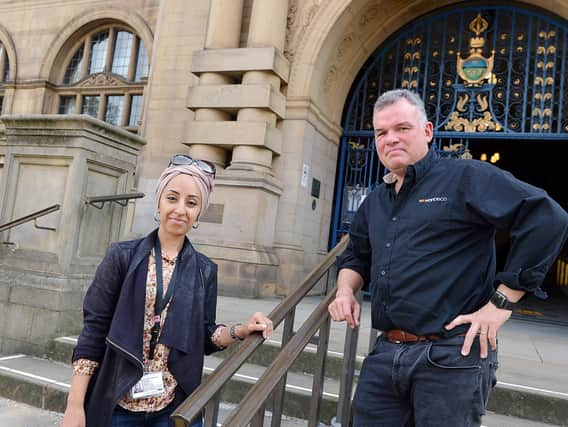Government must raise its game as Covid school absences highlight digital divides: David Richards


More than a century later, a similar set of circumstances applies to an entire generation of young people, limiting their access to education and the ability to reach their potential.
For pen and ink, read laptop and connectivity.
Without them, children are unable to take part in remote learning and risk being left behind. As a business leader with a conscience, I shudder at the consequences and so should you.
Advertisement
Hide AdAdvertisement
Hide AdAs I write, Covid-related absences in schools have reached the highest level since classrooms reopened in March.
The number of teachers absent has nearly doubled. This spells out yet more disruption for pupils after a year like no other, especially for those without access to technology.
And in spite of the efforts of campaigns like Laptops for Kids and the £400m spent by the Government on IT equipment to support remote learning, the so-called digital divide remains as real as ever for many families, especially in the North of England.
An independent survey of more than 100 state schools shows that more than four in 10 still need digital devices to meet the needs of their local communities. Headteachers say some families are having to choose between “eating or paying for internet services” while others can only access lessons by mobile phone.
Advertisement
Hide AdAdvertisement
Hide AdLearn Sheffield, the non-profit company which carried out the survey, said schools and colleges want to make greater use of technology to support learning but need to solve the issues of lack of access to devices and connectivity for all children to make this a reality.
Teaching, like working, has changed forever as a result of the Covid crisis.
The incredible power of cloud computing has enabled those schools and businesses with the means to continue operating through the lockdowns, switching seamlessly to remote learning and working. Many businesses actually increased productivity by gaining hours every day previously lost to travel and other time-sapping activities. Hybrid working is being talked about as the new 9-5.
As for education, 94 per cent of schools surveyed by Learn Sheffield said they would definitely be doing more general schoolwork online or were thinking positively about it.
Advertisement
Hide AdAdvertisement
Hide AdBut what about those families without the means? According to Ofcom, one in five children did not have consistent access to a suitable device for home learning during the pandemic. This increased to a quarter of children from the most disadvantaged households.
Parents striving to make ends meet and build a brighter future for their families are being hampered by this inability to connect with classrooms. Take Robert Robinson, a self-employed chef and father of three from Sheffield whose catering company The Personal Chef did not qualify for government support. His broadband provider cut off their connectivity during the pandemic because they could not afford to pay the bill. He believes the resulting lack of internet access has “definitely” affected his children’s education during lockdowns.
The Laptops for Kids campaign is proud to be able to support families like the Robinsons and many others with donated digital devices. To date, we have sourced more than 14,000 computers and 5,000 dongles thanks to the goodwill and generosity of our supporters across the North of England.
We launched the campaign in Sheffield last September in response to the glaring inequalities exposed by the pandemic and galvanised a group of partners from the public and private sectors to secure donations and distribute devices to schools most in need. It has taken an enormous effort from everybody involved to get this far.
Advertisement
Hide AdAdvertisement
Hide AdAs cases rise and more classes close, I dearly hope the Government has a strategy to make sure every child can continue to access education. The Government desperately needs to raise its game.
A report from the House of Commons Committee of Public Accounts criticised the Department for Education for having no plan for handling the disruption of the pandemic and, damningly, for setting no standards for in-school or remote learning during the rest of the 2019-20 school year. As a result, children had very unequal experiences.
To quote Joyce, we can’t bring back time. But we can make sure this never happens again.
David Richards is co-founder of the Laptops for Kids campaign and founder and CEO of WANdisco plc
Advertisement
Hide AdAdvertisement
Hide AdSupport The Yorkshire Post and become a subscriber today. Your subscription will help us to continue to bring quality news to the people of Yorkshire. In return, you'll see fewer ads on site, get free access to our app and receive exclusive members-only offers. Click here to subscribe.